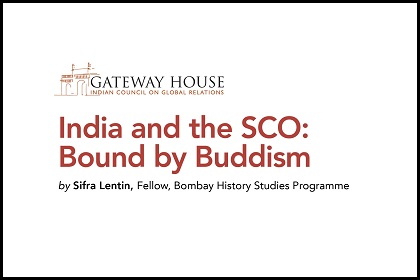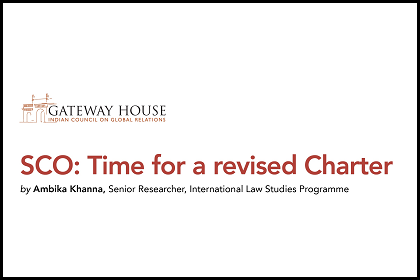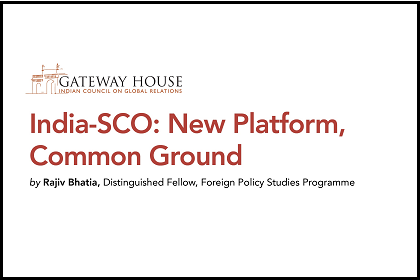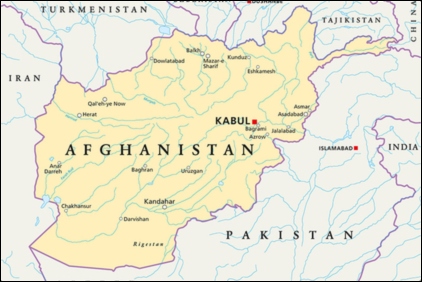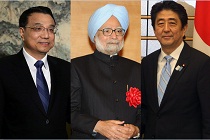India and the SCO: Bound by Buddism
In November this year, India will be hosting the Shanghai Cooperation Organisation (SCO) exhibition “Shared Buddhist Heritage” to coincide with the SCO Council of Heads of Government Meeting and two Ministerial Level Meetings. This paper recommends a theme on India’s Buddhist legacy in the SCO, which ties together three important Buddhist historical narratives (based on archaeological evidence), that can add heft to India’s leadership in reviving people-to-people ties through Buddhism amongst the eight member nations

